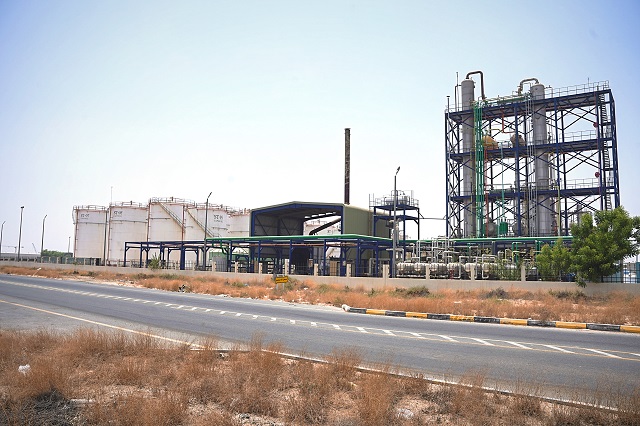EPC contracts can be a real game-changer for complex projects. Imagine having one team responsible for everything from design to construction. It’s like having a personal project manager who knows your project inside and out.
With EPC, you get guaranteed costs and faster completion. No more unexpected surprises or endless delays. It’s like having a safety net for your project.
But that’s not all. EPC contracts also bring higher quality and better performance. It’s like having a top-notch team working on your project.
So, if you’re looking for a stress-free and successful project, EPC might be the perfect fit for you.
Here’s a quick recap of the benefits of EPC contracts:
- Reduced risk
- Faster completion
- Improved quality
- Lower costs
- Increased flexibility
If you’re considering an EPC contract, be sure to do your research and select a qualified contractor. You should also negotiate the terms of the contract to ensure it meets your needs.
Overall, EPC contracts can be a great way to deliver complex projects on time, within budget, and to a high standard of quality.
Now, let’s dive deeper into the advantages of EPC contracts:
1. Risk Mitigation and Cost Control
- Single Point of Accountability: EPC contracts consolidate the responsibility for project delivery into a single entity. This eliminates the potential for disputes and delays that can arise from multiple contractors working independently.
- Guaranteed Maximum Price (GMP): Many EPC contracts include a GMP, which sets a fixed price for the project. This provides the owner with greater certainty about the final cost and helps to avoid cost overruns.
- Faster Completion: With a single entity overseeing all aspects of the project, there is a greater likelihood of efficient coordination and timely completion.
- Reduced Change Orders: EPC contractors are incentivized to minimize changes during construction, as they can impact both cost and schedule.
2. Enhanced Project Management
- Comprehensive Project Planning: EPC contractors are responsible for developing a comprehensive project plan that covers all aspects of the project, from design and engineering to procurement and construction.
- Experienced Project Management: EPC contractors typically have experienced project management teams that can effectively manage complex projects and mitigate risks.
- Integrated Supply Chain Management: EPC contractors often have established relationships with suppliers and subcontractors, which can help to ensure efficient procurement and delivery of materials and equipment.
3. Improved Quality and Performance
- Standardized Design and Construction Methods: EPC contractors can leverage standardized design and construction methods to improve quality and efficiency.
- Quality Control Measures: EPC contractors are responsible for implementing quality control measures throughout the project to ensure that the final product meets the owner’s requirements.
- Performance Guarantees: Some EPC contracts include performance guarantees that ensure the project meets specified performance criteria.
4. Increased Flexibility and Adaptability
- Design-Build Flexibility: EPC contracts often allow for greater flexibility in the design and construction phases, which can be beneficial for projects with evolving requirements.
- Adaptability to Changing Conditions: EPC contractors are better equipped to adapt to changing conditions, such as unexpected site conditions or regulatory changes.
5. Reduced Administrative Burden
- Simplified Contract Management: EPC contracts consolidate multiple contracts into a single agreement, reducing the administrative burden on the owner.
- Streamlined Communication: EPC contractors act as a single point of contact for the owner, simplifying communication and coordination.
6. Accelerated Project Delivery
- Parallel Activities: EPC contractors can often perform multiple activities in parallel, such as design, procurement, and construction, which can accelerate project delivery.
- Early Involvement: EPC contractors are typically involved in the project early on, which allows them to identify and address potential issues before they become problems.
7. Technology Integration
- Advanced Technologies: EPC contractors can leverage advanced technologies, such as Building Information Modelling (BIM) and Internet of Things (IoT), to improve project efficiency and quality.
- Data-Driven Decision Making: EPC contractors can use data analytics to make informed decisions and optimize project performance.
8. Reduced Risk of Cost Overruns
- Fixed Price Contracts: Many EPC contracts are fixed price contracts, which provide the owner with a guaranteed maximum price for the project.
- Contingency Planning: EPC contractors are typically required to develop contingency plans to address potential risks and uncertainties.
9. Improved Dispute Resolution
- Integrated Dispute Resolution Procedures: EPC contracts often include integrated dispute resolution procedures, such as mediation and arbitration, to help resolve disputes quickly and efficiently.
10. Enhanced Sustainability
- Sustainable Design and Construction: EPC contractors can incorporate sustainable design and construction practices to reduce the project’s environmental impact.
- Energy Efficiency: EPC contractors can help to ensure that the project is energy efficient and meets sustainability standards.
Additional Considerations
- EPC Contract Types: There are several types of EPC contracts, including turnkey contracts, lump sum contracts, and cost-plus contracts. Each type has its own advantages and disadvantages.
- EPC Contractor Selection: It is important to carefully select a qualified EPC contractor with a proven track record of delivering successful projects.
- Contract Negotiation: The negotiation process for an EPC contract can be complex and time-consuming. It is important to have a clear understanding of your project requirements and to negotiate favourable terms.
- Project Oversight: Even with an EPC contract in place, it is important for the owner to maintain oversight of the project to ensure that it is progressing according to plan.
- Post-Construction Services: Some EPC contractors offer post-construction services, such as operation and maintenance, which can be beneficial for the owner.
By carefully considering these factors, owners can maximize the benefits of EPC contracts and ensure successful project delivery.
So, what are you waiting for? If you’re ready to take your next project to the next level, consider using an EPC contract. Consider Midas EPC for your next project in Sharjah?


